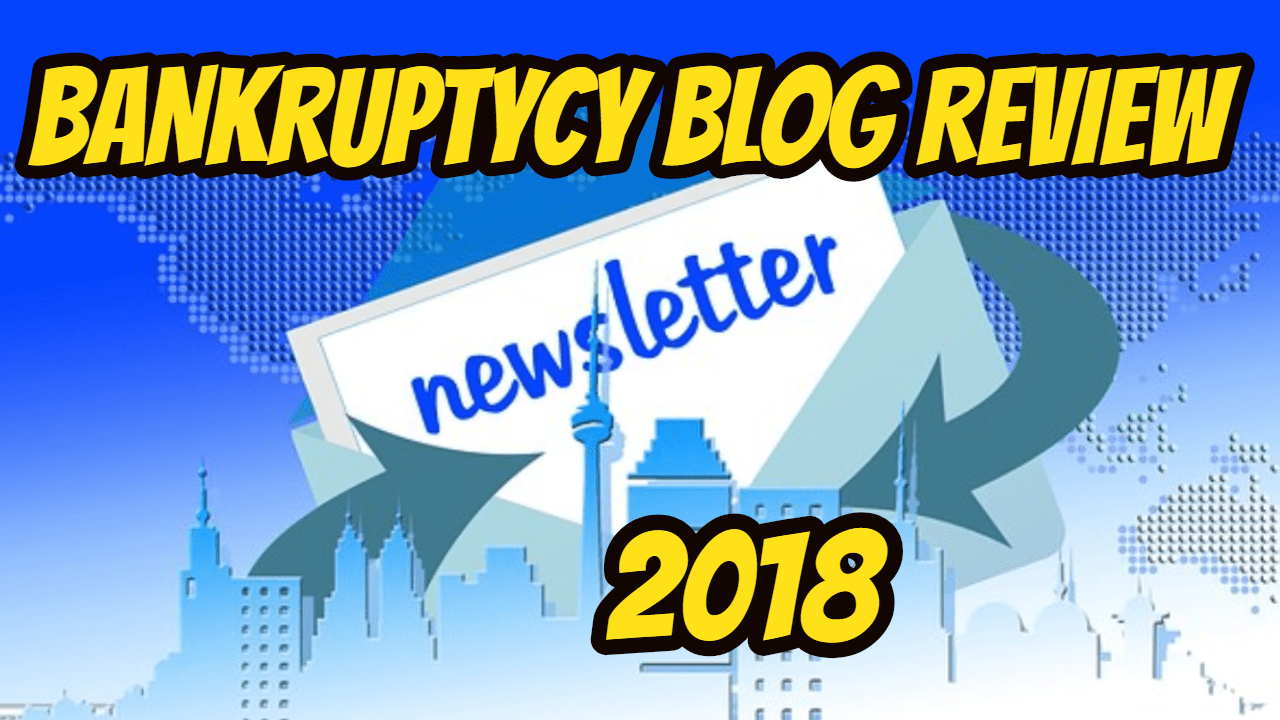You’re Richer Than You Think: What Is Money Dysmorphia?
You’re richer than you think is a slogan used by The Bank of Nova Scotia for its ScotiaBank consumer financial products advertisements. It is normal for Canadians to be concerned about their finances and whether they will have enough to pay bills, pay for their children’s education and save for retirement. Many times we feel that we won’t have enough. That is all normal. But sometimes, the rational can become irrational.
In the present era of digital advancements, social media has emerged as a major contributor to the exacerbation of money dysmorphia, particularly affecting Generation Z and millennials. This irrational unease regarding one’s financial status can result in feelings of inadequacy and financial strain. Here, we explore expert advice on reclaiming command over your financial health.
In this Brandon’s Blog, I discuss how money dysmorphia, influenced by social media comparisons, leads to financial stress. Overcoming it requires setting clear goals, seeking professional guidance, and cultivating healthy financial habits. The reality is, for most people, you’re richer than you think.
Definition of money dysmorphia
Money dysmorphia is a term that resonates deeply in today’s society. It is a psychological condition characterized by the irrational anxiety individuals experience about their financial status. Money dysmorphia can be felt by anyone, regardless of their actual wealth or income. The effects of this phenomenon are very detrimental.
Money dysmorphia is a distorted perception of one’s financial situation. Individuals with money dysmorphia may experience intense feelings of inadequacy or dissatisfaction with their financial status. This condition can lead to compulsive spending, hoarding, or other maladaptive behaviours related to money management.
Individuals with money dysmorphia may also have difficulty accurately assessing their financial resources and may engage in risky financial decisions as a result. It is important for individuals experiencing symptoms of money dysmorphia to seek professional help. Financial therapy, behavioural therapy or financial counselling, to address and manage their symptoms effectively are all avenues to consider to get help.
Who is affected by money dysmorphia?
Money dysmorphia can affect individuals from all walks of life, regardless of their socioeconomic status. It creates a significant impact on their financial well-being, relationships, and overall quality of life. While anyone can be susceptible to money dysmorphia, certain factors such as childhood experiences, societal pressures, and personal insecurities may increase the likelihood of developing this disorder.
The FP Canada’s 2024 Financial Stress Index, reveal a concerning trend of heightened financial worries, particularly among younger demographics like Generation Z and millennials. Factors like rising inflation, escalating housing costs, and the overall economic landscape contribute to this growing sense of financial insecurity. A study by Credit Karma shows similar results.
You’re Richer Than You Think: Causes of money dysmorphia
The causes of money dysmorphia can be complex and multifaceted, but some potential contributing factors include:
Cultural and societal influences
- Societal pressure to consume and keep up with material possessions can contribute to an unhealthy relationship with money.
- Limited understanding of personal finance and money management can lead to feelings of uncertainty and anxiety.
- Exposure to social media may foster unrealistic expectations and comparisons, potentially resulting in feelings of inadequacy and discontentment with one’s financial circumstances.
- Environmental factors such as poverty, economic instability, or financial insecurity can contribute to money dysmorphia.
Personal experiences and traumas
- Childhood experiences of financial stress, poverty, or neglect can lead to a distorted relationship with money.
- .Chronic financial stress can lead to feelings of anxiety, guilt, and shame.
- Family members’ financial behaviour, attitudes, and values can influence an individual’s relationship with money.
- Major life events, such as job loss, divorce, or illness, have the potential to trigger or worsen distortions in perception and reality.
- Limited financial literacy can lead to feelings of uncertainty and anxiety.
- Low self-esteem or self-worth can lead to an unhealthy relationship with money, as individuals may use money as a means to compensate for feelings of inadequacy.
Mental health conditions
Various mental health conditions, including anxiety, depression, and obsessive-compulsive disorder, have been identified as potential factors contributing to the development of unhealthy attitudes towards money. An individual’s values and beliefs regarding financial matters, such as the perceived importance of material possessions or the necessity of saving, can significantly influence their relationship with money.
Research indicates a possible correlation between these attitudes and abnormalities in brain regions associated with emotional processing, such as the anterior cingulate cortex. Additionally, specific personality traits like perfectionism, rigidity, or impulsivity may heighten one’s susceptibility to developing problematic financial behaviours.
Setting unrealistic or unattainable financial objectives can lead to feelings of frustration and disappointment, ultimately exacerbating the condition known as money dysmorphia.
It’s essential to note that money dysmorphia is a complex condition, and multiple factors may contribute to its development. If you’re struggling with money dysmorphia, it’s crucial to seek professional help from a mental health expert or a financial advisor to address the underlying issues and develop a healthier relationship with money.

You’re Richer Than You Think: Impact of Social Media on Financial Well-Being
The comparison trap on social media platforms has become a prevalent issue, especially among younger generations like Generation Z and millennials.
When scrolling through social media feeds, it’s easy to fall into the trap of comparing one’s financial status to the seemingly perfect lives portrayed online. This constant exposure to curated content can fuel feelings of inadequacy and financial stress, creating a flawed perception of reality.
Social media is pivotal in perpetuating financial insecurities, creating a platform where comparisons run rampant. The carefully curated highlight reels and seemingly flawless lives showcased on social platforms can distort perceptions of reality, leading individuals to question their financial standing. This constant exposure to unrealistic standards can fuel feelings of inadequacy and breed a culture of comparison.
It is imperative to comprehend the impact of social media on shaping financial attitudes and behaviours in addressing issues related to money dysmorphia. Acknowledging that online depictions often present a curated and exaggerated representation of reality enables individuals to liberate themselves from the comparison trap. It is essential to foster a mindset that prioritizes personal growth over seeking external approval, concentrating on individual financial objectives and ambitions rather than external standards.
You’re Richer Than You Think: Who is most affected by money dysmorphia?
Money dysmorphia, also known as financial anxiety disorder, can affect anyone who has a distorted perception of money and financial reality. However, certain groups may be more prone to experiencing money dysmorphia due to various factors.
Young adults and millennials
People in their 20s and 30s may be more susceptible to money dysmorphia. Let’s explore these and other factors more closely:
- Career establishment: This age group is often in the process of establishing their careers, which can be a significant source of stress. The pressure to secure a job, climb the corporate ladder, and achieve professional success can lead to financial anxiety and a distorted view of money.
- Student loan debt: Many individuals in this age group are still paying off student loans, which can be a significant financial burden. The pressure to manage debt, make timely payments, and avoid default can contribute to financial stress and anxiety.
- Building a financial foundation: This age group is often expected to establish a financial foundation, including building an emergency fund, paying off debt, and starting to save for retirement. The pressure to achieve these financial milestones can lead to feelings of inadequacy and financial anxiety.
- The impact of social media: Platforms such as Instagram and Facebook frequently portray the idealized lives of others, complete with their financial achievements. This can cultivate unattainable standards and feelings of inadequacy, prompting financial distress and a distorted perception of wealth.
- Changing financial priorities: As people enter their 20s and 30s, their financial priorities often shift from living expenses to long-term goals, such as buying a home, starting a family, or achieving financial independence. This shift can be overwhelming and lead to financial anxiety.
- Growing financial commitments: As individuals transition into their 20s and 30s, they often assume additional financial obligations, which may include providing for dependents, covering healthcare expenses, and overseeing household finances. These augmented financial responsibilities can lead to heightened levels of financial strain and anxiety.
- Insufficient financial education: Individuals within this demographic may have not been equipped with sufficient financial education or guidance, resulting in feelings of uncertainty and anxiety regarding their financial status.
- Social comparison pressure: The societal expectation to align with the lifestyles of peers, coworkers, and social media figures can result in sentiments of insufficiency and economic distress. Individuals may perceive a need to conform to current fashions, acquire the latest technologies, or engage in extravagant travel experiences to uphold a desired social standing.
- The phenomenon known as the fear of missing out (FOMO): Pertains to apprehensions about missing out on financial prospects, career advancements, or life experiences, which can give rise to financial stress and a skewed perspective on money.
- Lack of financial self-assurance: Individuals in their 20s and 30s may exhibit a lack of financial self-assurance, leading to feelings of doubt and anxiety regarding their financial circumstances.
Individuals with low self-esteem or a history of a history of trauma
Individuals with low self-esteem or a history of trauma may be more susceptible to money dysmorphia due to the following reasons:
- Negative self-talk: People with low self-esteem may have a negative inner dialogue that can manifest in their financial decisions. They may believe they are not worthy of financial success or that they don’t deserve to have money. This negative self-talk can lead to financial anxiety, fear, and a distorted view of money.
- Fear of rejection: Individuals with a history of trauma may have a deep-seated fear of rejection, which can manifest in their financial decisions. They may be overly cautious with their finances, hoarding money or avoiding financial risks, due to a fear of being rejected or abandoned.
- Low self-esteem: Individuals who have experienced trauma may encounter challenges related to shame, guilt, and self-blame, resulting in diminished self-worth. This may influence their financial behaviour, as they may perceive themselves as undeserving of wealth or lacking in worthiness to attain financial prosperity.
- Hyper-vigilance: Individuals with a history of trauma may be in a state of hyper-vigilance, always on the lookout for potential threats or dangers. This can manifest in their financial decisions, as they may be overly cautious or risk-averse, leading to a distorted view of money.
- Challenges with establishing boundaries: Individuals who have experienced trauma may encounter difficulties in setting and upholding appropriate boundaries, potentially impacting their financial well-being. They may find it challenging to assertively decline financial demands or regulate their expenses, resulting in heightened financial strain and distress.
- Emotional regulation: Individuals with low self-esteem or a history of trauma may struggle with emotional regulation, leading to intense emotional responses to financial stress or anxiety. This can lead to impulsive financial decisions or a distorted view of money.
- Fear of loss: Trauma survivors may have a deep-seated fear of loss, which can manifest in their financial decisions. They may be overly attached to their money or possessions, leading to a distorted view of money and financial anxiety.
- Difficulty with self-care: Individuals with low self-esteem or a history of trauma may struggle with self-care, including taking care of their physical and emotional needs. This can lead to financial decisions that prioritize others’ needs over their own, leading to financial stress and anxiety.
- Lack of financial education: Trauma survivors may have a lack of financial education or guidance, leading to financial anxiety and a distorted view of money.
- Individuals with a history of trauma or low self-esteem: Such people may encounter challenges with trust, which can extend to trusting themselves, others, or financial institutions. This difficulty may result in financial choices influenced by fear or mistrust, rather than logical decision-making.
Those with a history of financial difficulties
People with a history of financial difficulties may be more prone to money dysmorphia due to the following reasons:
- Fear of financial instability: Individuals who have experienced financial difficulties in the past may be more anxious about their financial situation and more likely to develop a distorted view of money.
- Trauma and stress: Financial difficulties can be a traumatic experience, leading to stress, anxiety, and feelings of shame or guilt. This trauma can lead to a distorted view of money and a fear of financial instability.
- Lack of financial confidence: Individuals who have faced financial challenges, possibly due to past poor decisions, may experience a lack of confidence in their financial management capabilities. This can result in a skewed perception of money and a heightened fear of making further financial errors.
- Fear of debt: Individuals who have struggled with debt may be more anxious about debt and more likely to develop a distorted view of money.
- Fear of financial loss: People who have experienced financial loss, such as a job loss or a financial setback, may be more anxious about financial loss and more likely to develop a distorted view of money.
- Difficulty with financial planning: Individuals who have struggled with financial difficulties may have difficulty planning for the future, leading to a distorted view of money and a fear of financial instability.
- Fear of financial judgment: People who have struggled with financial difficulties may fear being judged by others for their financial situation, leading to a distorted view of money and a fear of financial instability.
- Difficulty with financial decision-making: Individuals who have struggled with financial difficulties due to having made poor decisions in the past may have difficulty making financial decisions, leading to a distorted view of money and a fear of financial instability.
- Fear of financial vulnerability: People who have struggled with financial difficulties may fear being vulnerable to financial exploitation or taking financial risks, leading to a distorted view of money and a fear of financial instability.
- Difficulty with financial forgiveness: Individuals who have struggled with financial difficulties may have difficulty forgiving themselves for past financial mistakes, leading to a distorted view of money and a fear of financial instability.
It is crucial to acknowledge that money dysmorphia can serve as a symptom of deeper financial trauma or challenges. Engaging with professional support, such as therapy or financial counselling, offers an effective approach to addressing these underlying issues and cultivating a more positive relationship with finances.

You’re Richer Than You Think: How money dysmorphia affects financial habits
Overspending and impulse buying
Excessive spending and impulsive purchasing are prevalent outcomes of financial dysmorphia. The subsequent delineation illustrates how financial dysmorphia may precipitate increased expenditure and impulsive buying behaviour:
Overspending:
- Compensatory spending: Individuals with money dysmorphia may overspend as a way to compensate for perceived financial shortcomings or to alleviate feelings of financial anxiety.
- Emotional spending: A phenomenon that involves individuals turning to shopping as a coping mechanism for managing negative emotions like stress, anxiety, or boredom.
- Keeping up appearances: Money dysmorphia can lead to a desire to keep up appearances, which can result in overspending on luxuries or status symbols.
- Fear of financial loss: Individuals with money dysmorphia may overspend as a way to avoid feelings of financial loss or to maintain a sense of financial security.
- Lack of financial boundaries: Money dysmorphia can lead to a lack of financial boundaries, making it difficult for individuals to say no to financial requests or to prioritize their own financial needs.
Impulse buying:
- Emotional triggers: Money dysmorphia can lead to emotional triggers, such as stress, anxiety, or boredom, which can cause individuals to make impulsive financial decisions.
- Lack of self-control: Individuals with money dysmorphia may struggle with self-control, leading to impulsive buying decisions.
- Fear of missing out (FOMO): Money dysmorphia can lead to FOMO, causing individuals to make impulsive buying decisions to avoid feeling left out or to keep up with others.
- Inadequate financial planning: The presence of money dysmorphia may result in a deficiency in financial planning, creating challenges for individuals in effectively prioritizing their financial objectives or making well-informed financial choices.
Hoarding and fear of spending
Hoarding and fear of spending are common consequences of money dysmorphia. Here are some ways in which money dysmorphia can lead to hoarding and fear of spending:
Hoarding:
- Fear of financial loss: Individuals with money dysmorphia may hoard money or resources as a way to avoid feelings of financial loss or to maintain a sense of financial security.
- Fear of scarcity: Hoarding can be a response to a perceived scarcity of resources, leading individuals to accumulate and hoard as a way to ensure their financial survival.
- Emotional attachment: Money dysmorphia can lead to an emotional attachment to money or resources, making it difficult for individuals to part with them.
- Fear of financial vulnerability: Hoarding can be a way to avoid feelings of financial vulnerability, as individuals may feel that by accumulating and hoarding, they are protecting themselves from financial uncertainty.
- Lack of financial planning: Hoarding can be a result of a lack of financial planning, as individuals may not have a clear understanding of their financial needs or goals.
Fear of spending:
- Fear of financial loss: Individuals with money dysmorphia may fear spending as a way to avoid feelings of financial loss or to maintain a sense of financial security.
- Fear of financial vulnerability: Fear of spending can be a way to avoid feelings of financial vulnerability, as individuals may feel that by not spending, they are protecting themselves from financial uncertainty.
- Fear of debt: Fear of spending can be a result of a fear of debt, as individuals may feel that by not spending, they are avoiding debt and financial obligations.
- Fear of financial judgment: Fear of spending can be a result of a fear of financial judgment, as individuals may feel that by not spending, they are avoiding criticism or judgment from others.
- Lack of financial confidence: Fear of spending can be a result of a lack of financial confidence, as individuals may feel that they are not financially prepared or capable of making financial decisions.
Constant comparison and dissatisfaction
Money dysmorphia can lead to constant comparison and dissatisfaction in several ways:
- Unrealistic expectations: Money dysmorphia can create unrealistic expectations about what one should have or be able to afford. This can lead to constant comparison with others who seem to have more or better things.
- Focus on material possessions: Money dysmorphia can lead to a focus on material possessions as a measure of financial stability or happiness. This can lead to constant comparison with others who have more or better possessions.
- Fear of missing out (FOMO): Money dysmorphia can create a sense of FOMO, where one feels like they are missing out on experiences or opportunities because they don’t have enough money.
- Perfectionism: Money dysmorphia can lead to perfectionism, where one feels like they need to have the perfect job, the perfect partner, the perfect home, etc. This can lead to constant comparison with others who seem to have it all together.
- Lack of self-acceptance: Money dysmorphia can lead to a lack of self-acceptance, where one feels like they are not good enough or worthy of happiness because of their financial situation.
- Comparison to others’ highlight reels: Social media can create a false sense of reality, where one compares their life to the highlight reels of others. This can lead to constant dissatisfaction and comparison. Fear of being judged: Money dysmorphia can create a fear of being judged by others for one’s financial situation. This can lead to constant comparison and dissatisfaction.
- Unrealistic standards: Money dysmorphia can create unrealistic standards for oneself and others. This can lead to constant comparison and dissatisfaction.
- Lack of gratitude: Money dysmorphia can lead to a lack of gratitude for what one already has. This can lead to constant comparison and dissatisfaction.
- Constant striving: Money dysmorphia can create a constant sense of striving for more, which can lead to constant comparison and dissatisfaction.
You’re Richer Than You Think: Strategies to Overcome Money Dysmorphia
Navigating the intricacies of money dysmorphia and its implications on financial wellness underscores the importance of establishing clear financial objectives. Setting tangible goals and monitoring their progress serves as a foundational element in regaining a sense of agency in managing one’s finances. This proactive strategy not only cultivates empowerment but also nurtures a positive rapport with money, facilitating a more informed understanding of one’s financial standing.
Here are some practical strategies that you can use to maintain a healthy relationship with money and your financial needs:
Build financial literacy
Financial literacy plays a vital role in addressing money-related challenges and fostering financial empowerment. Elevating one’s understanding of personal finance, seeking guidance from financial experts, and engaging in constructive dialogues about financial matters are fundamental steps in establishing a strong financial footing. By arming oneself with the requisite knowledge and skills, individuals can make well-informed decisions and confidently navigate the financial landscape.
Financial literacy and planning are indispensable components of effective money management and ensuring a secure financial future. In the contemporary, fast-paced environment where social media can influence our perceptions of wealth and success, it is imperative to educate ourselves on personal finance and cultivate sound financial practices for sustained prosperity.
Self-education on personal finance serves as a potent tool in addressing money-related anxieties, including money dysmorphia, which refers to the irrational distress individuals experience about their financial standing, often exacerbated by comparisons with others.
Seek professional help
In the face of societal pressures and financial uncertainties, it is essential to seek guidance from reliable sources. Engaging in candid discussions regarding financial worries with trusted individuals such as family, friends, or financial experts can provide valuable advice and direction. Building a supportive network can empower individuals to confront financial obstacles with resilience and determination.
Consulting with financial planners and advisors can offer specialized insights and expertise for navigating the intricacies of personal finance. These professionals can offer a realistic assessment of one’s financial standing, identify areas for enhancement, and devise a roadmap toward financial security. By leveraging their proficiency and experience, informed decisions can be made to bolster long-term financial well-being.
Create a monthly budget
A critical aspect of addressing financial challenges such as money dysmorphia involves establishing clear financial objectives that align with our fundamental values. This process commences with a thorough assessment of our monthly income and expenses, followed by the development of a financial strategy that ensures our expenditures do not exceed our earnings.
By articulating our financial aspirations in harmony with our core principles, we can construct a comprehensive framework that informs our financial decisions and behaviours. Whether our objectives involve saving for a significant trip, purchasing a property, or investing in further education, linking our financial goals with our values instills a sense of purpose and direction.
Effective budgeting relies on the diligent tracking of income and expenses. By monitoring the sources of our monthly income, as well as our expenditures and their destinations, we can gain valuable insights into our spending patterns and identify opportunities to reduce expenses or enhance savings. Formulating and adhering to a budget fosters accountability and empowers us to progress toward our financial objectives, whether they are short-term initiatives like saving for a vacation or longer-term goals.

You’re Richer Than You Think: Conclusion
Money dysmorphia, influenced by social media comparisons, leads to financial stress. Overcoming it requires setting clear goals, seeking professional guidance, and cultivating healthy financial habits.
I hope you enjoyed this you’re richer than you think Brandon’s Blog. Do you or your company have too much debt? Are you or your company in need of financial restructuring? The financial restructuring process is complex. The Ira Smith Team understands how to do a complex restructuring. However, more importantly, we understand the needs of the entrepreneur or someone with too much personal debt.
You are worried because you are facing significant financial challenges. It is not your fault that you are in this situation. You have been only shown the old ways that do not work anymore. The Ira Smith Team uses new modern ways to get you out of your debt troubles while avoiding bankruptcy. We can get you debt relief freedom.
The stress placed upon you is huge. We understand your pain points. We look at your entire situation and devise a strategy that is as unique as you and your problems; financial and emotional. The way we take the load off of your shoulders and devise a plan, we know that we can help you.
We know that people facing financial problems need a realistic lifeline. There is no “one solution fits all” approach with the Ira Smith Team.
That is why we can develop a restructuring process as unique as the financial problems and pain you are facing. If any of this sounds familiar to you and you are serious about finding a solution, contact the Ira Smith Trustee & Receiver Inc. team today.
Call us now for a free consultation. We will get you or your company back on the road to healthy stress-free operations and recover from the pain points in your life, Starting Over, Starting Now.
The information provided in this Brandon’s Blog is intended for educational purposes only. It is not intended to constitute legal, financial, or professional advice. Readers are encouraged to seek professional advice regarding their specific situations. The content of this Brandon’s Blog should not be relied upon as a substitute for professional guidance or consultation. The author, Ira Smith Trustee & Receiver Inc. as well as any contributors to this Brandon’s Blog, do not assume any liability for any loss or damage resulting from reliance on the information provided herein.



 We hope that you and your family are safe, healthy and secure during this
We hope that you and your family are safe, healthy and secure during this

